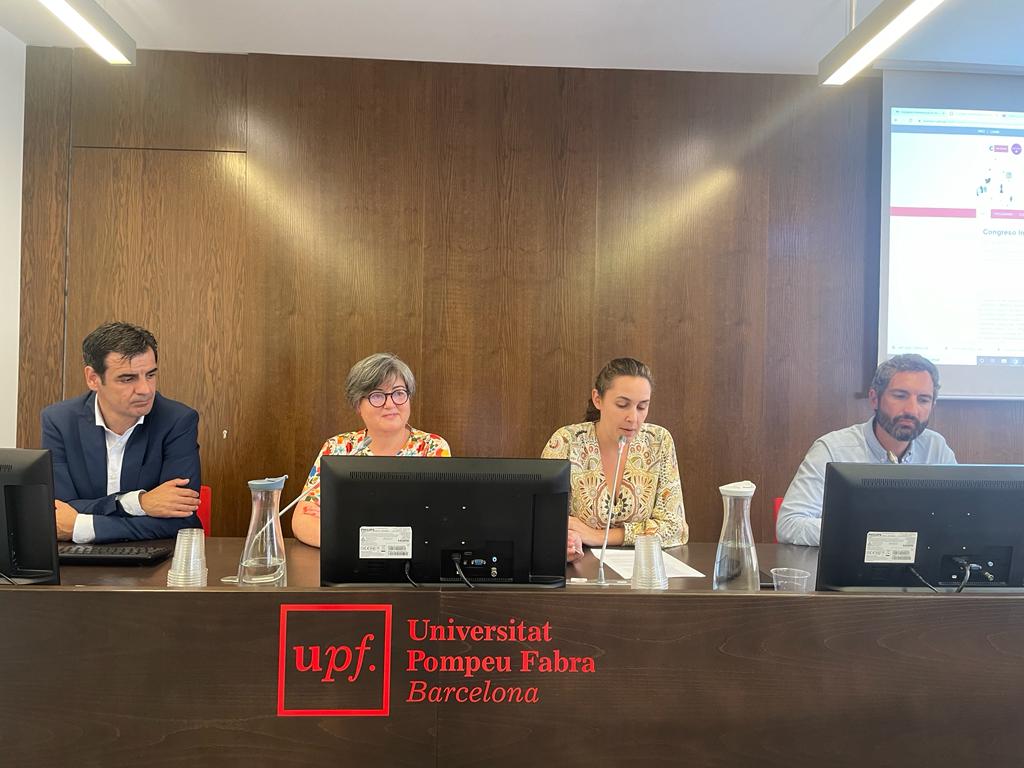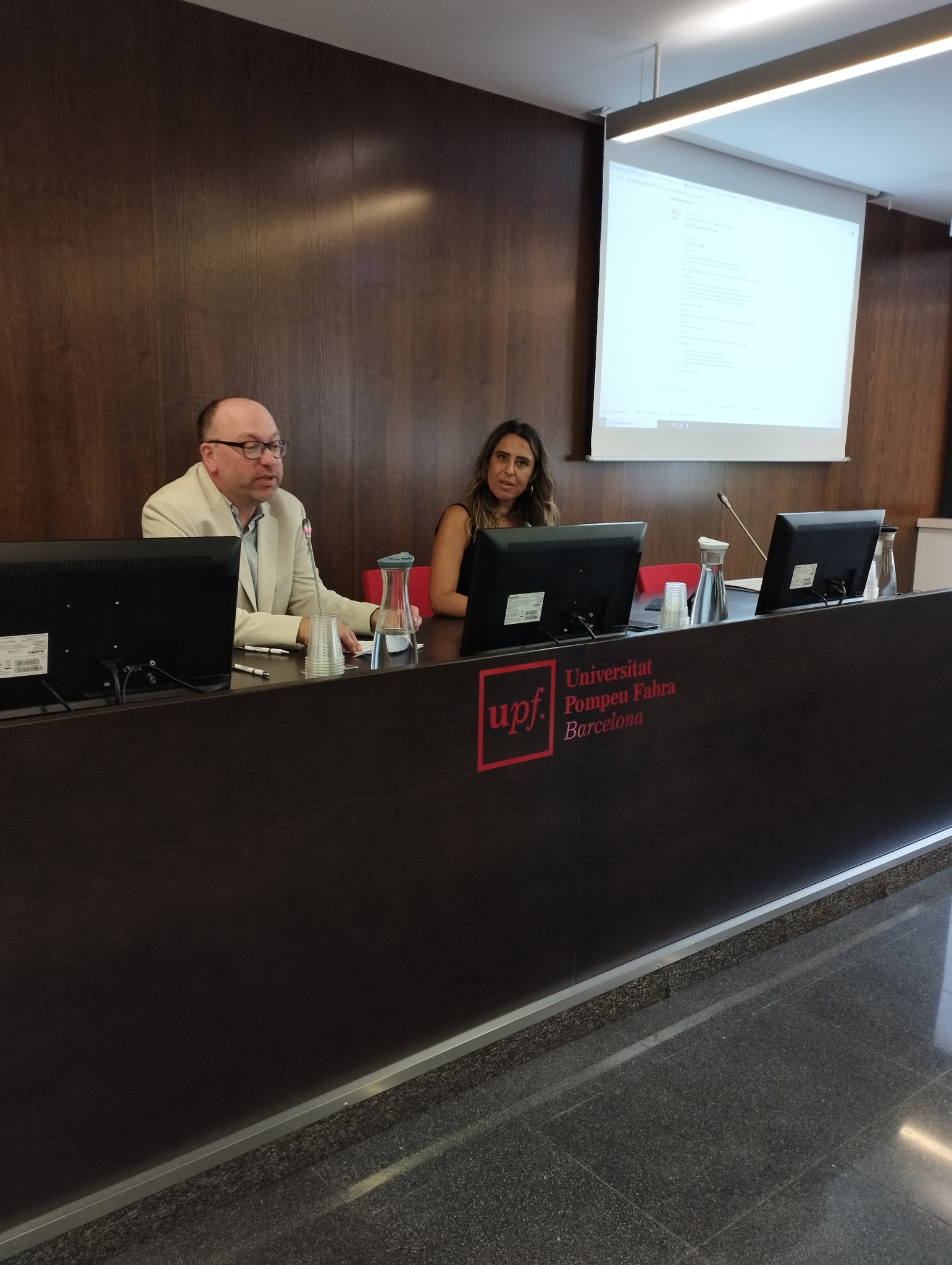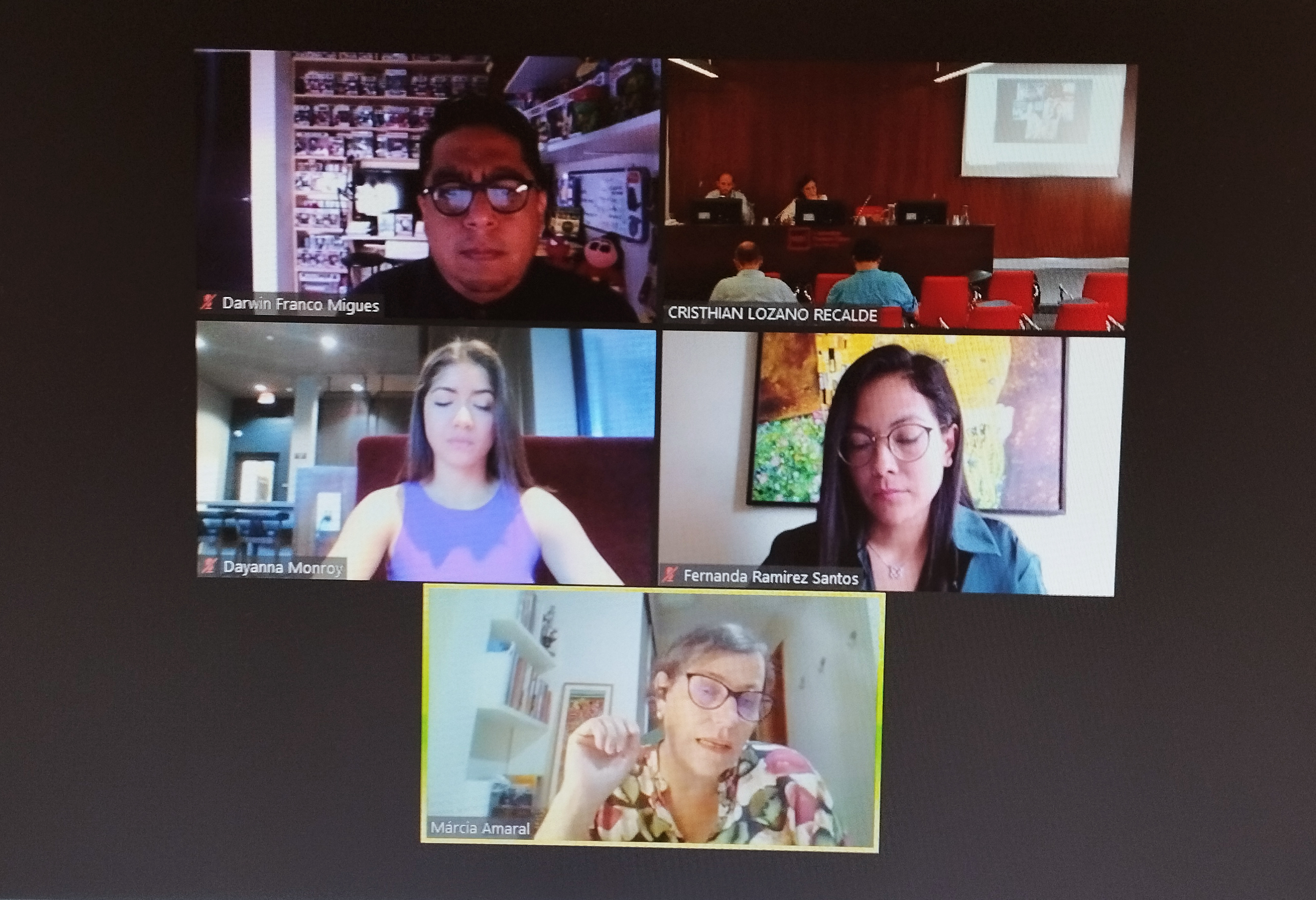Emerging situations and hate speech on social networks: the central theme of the I International Social Media Congress
Emerging situations and hate speech on social networks: the central theme of the I International Social Media Congress
Emerging situations and hate speech on social networks: the central theme of the I International Social Media Congress
During the conference, participants reflected on the role of social networks in crisis communication and the key actions that communication professionals should follow to mitigate the hate speeches that are spread on these platforms.

Under the name "Crisis, risks and hate speech: challenges and strategies for digital communication", the I International Congress on Social Media, organized by the POLCOM-GRP research group of the Universitat Pompeu Fabra in conjunction with the Universitat de Lleida, was held on Wednesday, June 28. With the presence of different speakers from the academic and professional field, as well as the presentation of national and international communications, the role of social networks in the face of hate speech and the management of crisis and emergency situations was analyzed.
 The day began with the participation of the researcher and professor at the Carlos III University of Madrid, Francisco Seoane, together with the spokesperson of the Government of the Generalitat de Catalunya, Patrícia Plaja, to analyze communication in emergencies as happened in Catalonia in August 2017, when two terrorist attacks were experienced in Barcelona and Cambrils: "Now we know how it all ended, but at minute zero all we had were dozens of victims. The scenario was tough and the forecasts of what could happen, too" pointed out Plaja who in 2017 was developing as head of Communication of the Mossos d'Esquadra.
The day began with the participation of the researcher and professor at the Carlos III University of Madrid, Francisco Seoane, together with the spokesperson of the Government of the Generalitat de Catalunya, Patrícia Plaja, to analyze communication in emergencies as happened in Catalonia in August 2017, when two terrorist attacks were experienced in Barcelona and Cambrils: "Now we know how it all ended, but at minute zero all we had were dozens of victims. The scenario was tough and the forecasts of what could happen, too" pointed out Plaja who in 2017 was developing as head of Communication of the Mossos d'Esquadra.
Plaja, who called herself a "journalist by vocation", pointed out that one of the challenges of communicating a crisis of such magnitude on social networks is to provide immediate and truthful answers to avoid confusion and thus protect the population. After this first intervention, the round table "Study, practice and evolution of social media in the face of crises and hate speeches" began, with the participation of Javier Ayuso, spokesperson for Emergencias 112 of the Community of Madrid, Amparo Huertas, researcher and professor at the Autonomous University of Barcelona and Marco Mayo Cubero, professor and researcher at the Complutense University of Madrid.
Moderated by Paloma Piqueiras, a member of the ComCrisis project, they reflected on the relationship between disinformation, hate speech and social networks. Ayuso emphasized the importance of incorporating the public in the effort to transmit accurate, relevant, and timely information on misinformation: "We seek to make people aware that they are also part of civil protection," he said, adding that, for this to be achieved, it is necessary to provide information on prevention and damage mitigation measures during an emergency. Another aspect highlighted at the round table was the feedback that should exist between the academy and the information professional. Participants agreed that racist, misogynist, and xenophobic narratives are not only limited to social networks, but also have an impact on politics and society. Therefore, the speakers emphasized the need for more research on the origin and factors that help spread hate speech on social networks.
In this sense, Guillem Suau, principal researcher of the competitive project "Odi En Xara" of the University of Lleida pointed out that "the same social networks, the media and also public institutions have to design protocols and resources to combat the spread of hate, just as today all institutions have a crisis communication plan, many of them should begin to design plans for containment and eradication of hate speech".
The third and last round table of the Congress, entitled "Challenges and opportunities in crisis management in  Latin America", was moderated by Ma. Luisa Sánchez and was attended by academics such as Fernanda Ramírez and Darwin Franco, research professors at the University of Guadalajara in Mexico, Dayanna Monroy, Ecuadorian journalist with experience in television in Ecuador and the United States, and Marcia Amaral, researcher and professor at the Federal University of Santa Maria in Brazil. Among the topics analyzed in this roundtable, are the need to take communication beyond disasters and focus on the understanding of social vulnerabilities, the need to propose concrete actions in social networks in the case of forced disappearances of people and the responsibility of the authorities in the generation of xenophobic and misogynist speeches were discussed.
Latin America", was moderated by Ma. Luisa Sánchez and was attended by academics such as Fernanda Ramírez and Darwin Franco, research professors at the University of Guadalajara in Mexico, Dayanna Monroy, Ecuadorian journalist with experience in television in Ecuador and the United States, and Marcia Amaral, researcher and professor at the Federal University of Santa Maria in Brazil. Among the topics analyzed in this roundtable, are the need to take communication beyond disasters and focus on the understanding of social vulnerabilities, the need to propose concrete actions in social networks in the case of forced disappearances of people and the responsibility of the authorities in the generation of xenophobic and misogynist speeches were discussed.
The Congress also included a space for the presentation of papers related to two main topics: crisis communication and hate speech in social networks. In this space, 11 papers were presented by researchers from Spain, Mexico, Peru, Brazil, and Pakistan.
